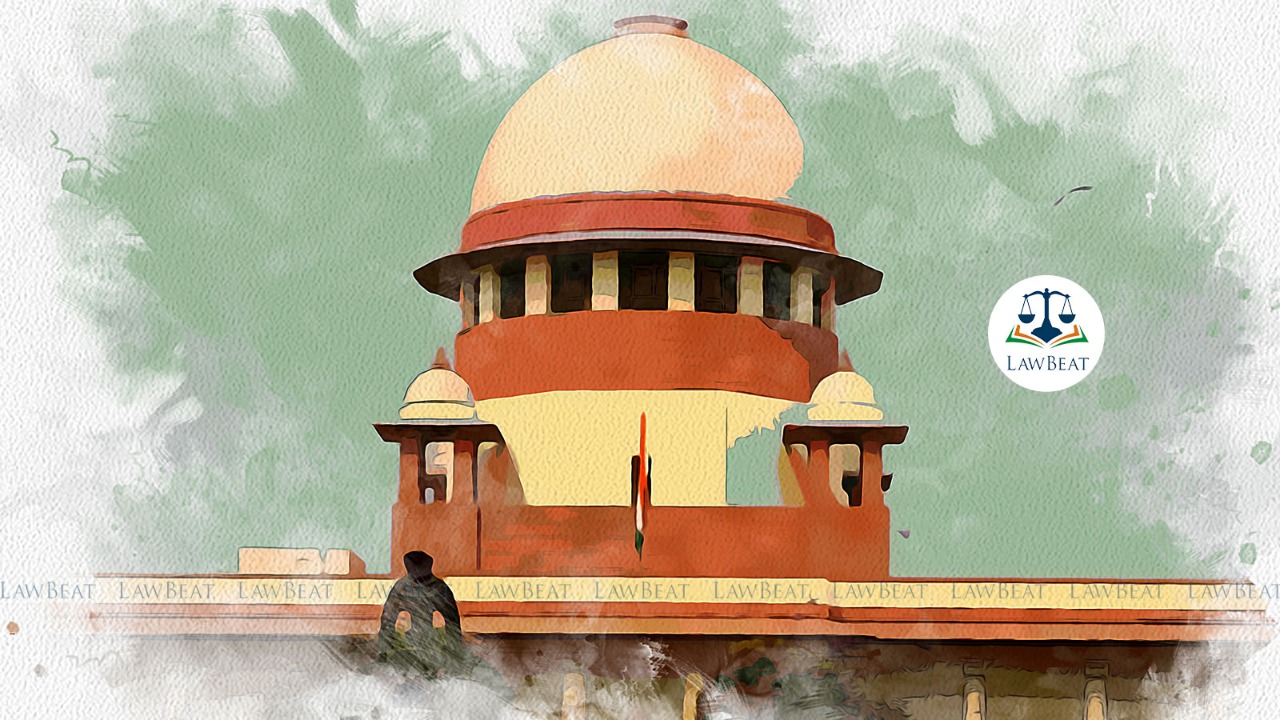'HC ventured into unwarranted inquiry': SC sets aside order for quashing FIR against Inspector in graft case

The Supreme Court said that the High Court failed to account for the principles enunciated by it in the case of State of Haryana & Ors Vs Bhajan Lal & Ors (1992)
The Supreme Court has on April 23, 2024 set aside an order quashing an FIR against a Police Inspector in a graft case saying the Karnataka High Court unwarrantedly ventured into an inquiry and recorded a finding that there was no direct evidence against the accused.
A bench of Justices Sanjay Karol and Prasanna Bhalachandra Varale also did not agree to the High Court's view that the accused police officer was exonerated in the departmental proceedings, ignoring the fact that the sanction for prosecution was accorded inspite of it.
The court allowed the appeal filed by complainant Sanju Rajan Nayar and and restored the FIR lodged against Jayaraj at Bengaluru.
The bench also held, "The High Court, in our considered view, failed to account for the principles enunciated by this court in the case of State of Haryana & Ors Vs Bhajan Lal & Ors (1992)."
The respondent Jayaraj stood exonerated in the departmental proceedings in relation to an inquiry initiated on the basis of the complaint with regard to the allegations of demand for bribe.
As a consequence thereof, the FIR registered on the basis of the complaint made by the instant appellant Nayar was quashed by the High Court of Karnataka at Bengaluru.
The appellant faced investigation in an FIR lodged by his wife for allegedly sexually harassing the minor child. There was a demand of bribe from him by the police personnel.
He brought the factum of such bribe to the notice of Karnataka Human Rights Commission, Bangalore, by placing on record the evidence inter alia in the shape of a pendrive.
As a result, based on the preliminary inquiry FIR was registered with the Anti Corruption Branch, City Bangalore Police Station on December 8, 2021 under the provisions of Prevention of Corruption Act, 1988. The authorities also accorded sanction for prosecuting Jayaraj.
In quashing the FIR, the High Court observed, “There is no direct evidence, where this petitioner has demanded any money or bribe from the complainant”.
The High Court also said, “There is no material to proceed against this accused". It concluded that only in order to overcome the complaint filed by his wife, the complaint was filed for taking revenge against the police as they had summoned him for the purpose of investigation.
The top court bench, on its part, noted that two persons were named as accused whereas the petition for quashing was preferred only by one of the accused, namely, Jayaraj.
It also found that the FIR was categorical that ASI Sivakumar (Accused no 2) had received money and that Police Inspector Jayaraj had assured that he would provide charge sheet in lieu of Rs 80,000 and that the appellant would also have to pay Rs 500 per week when he visits the police station, as a condition of bail.
"In the considered view of this court, the approach adopted by the courts in quashing the FIR in the attending facts and circumstances, is legally unsustainable. It ventured into an inquiry, unwarranted at this stage, holding that there is no direct evidence that the present respondent had demanded any money and that there was no material to proceed against him, completely forgetting, if not ignoring the material which had surfaced during the course of investigation, amongst others, the pendrive, allegedly, indicating his complicity in the crime," the bench said.
The court also pointed out that it was a pleaded case by the Lokayukta before the High Court that the continuance of the trial was not on the very same evidence as what weighed with the authorities in exonerating the employee in the departmental proceedings.
"This fact, also appears not to have been considered by the High Court in its correct perspective," the bench said.
The court thus set aside the High Court's judgment of January 2, 2023.
"We clarify that all questions of fact and law, as also other pleas raised, are left open for the parties to be agitated, if so advised and desired, before the appropriate forum at the appropriate stage," the bench said in its judgment.
